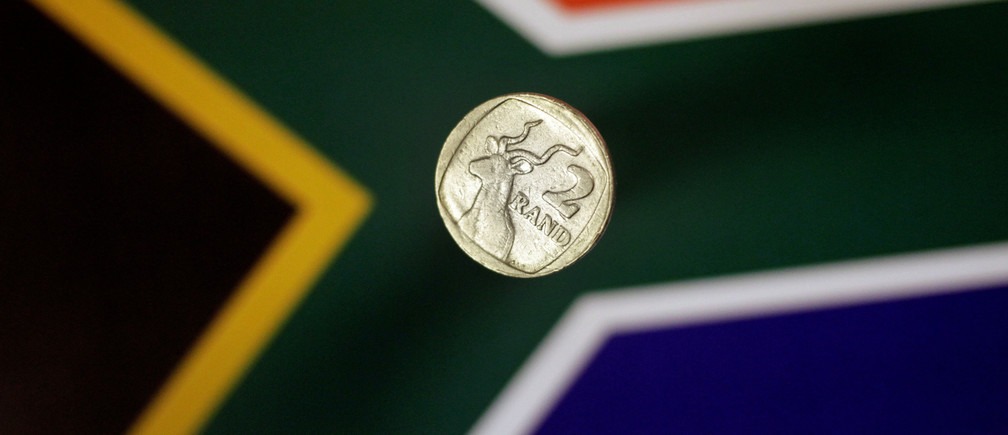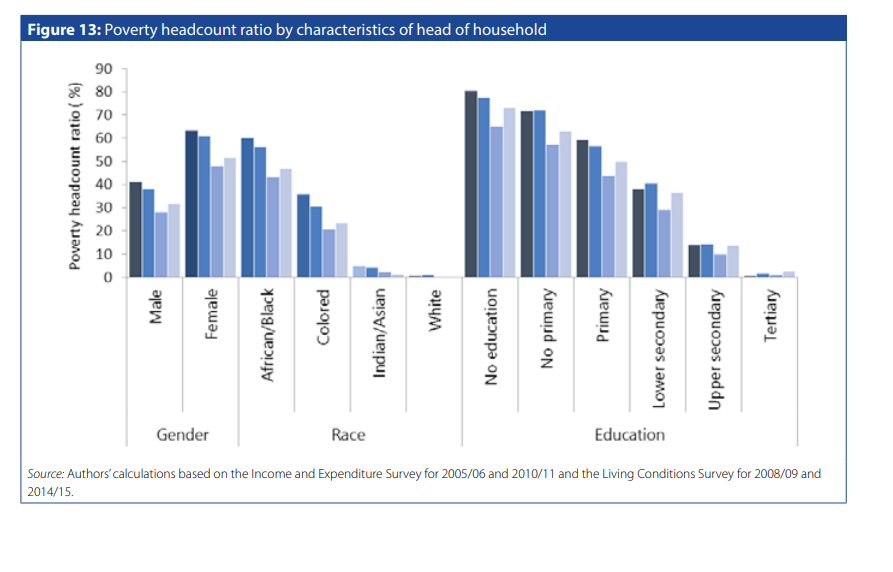South Africa's economy in 5 charts

Education, reskilling and jobs creation have a key part to play in South Africa’s future. Image: REUTERS/Thomas White/Illustration
This year marks a quarter of a century since South Africa became a democracy – and its people are voting in the sixth election since its first post-apartheid poll in 1994.
Whatever the outcome – a victory for the ruling ANC party and President Cyril Ramaphosa, or the opposition Economic Freedom Fighters (EFF) and the Democratic Alliance gain seats – there is undoubtedly work to be done to overcome inequality and boost the economy.
These five charts reveal the state of the nation:

When apartheid came to an end in 1994, South Africa was measured as the world’s most unequal country.
While around 2.3 million South Africans escaped poverty between 2006 and 2015, the 2018 World Bank report on Overcoming Poverty and Inequality in South Africa also found wealth inequality persists along the historical racial divide.
“Inequality has remained stubbornly high. South Africa is one of the most unequal countries in the world, with consumption inequality having increased since 1994.
“Wealth inequality is high and has been rising over time. A polarized labour market results in high wage inequality. Intergenerational mobility is relatively low and serves as a barrier to inequality reduction,” the report said.
Key to reducing inequality is the creation of jobs in “an inclusive manner”, the World Bank report noted.
South Africa has one of the world’s most persistent unemployment rates, which stands today at 27%.
From 2000, the year after Nelson Mandela retired from the presidency, until 2018, the unemployment rate has averaged just over one-quarter of the working population. It reached a record high of 31.2% in 2003 and a record low of 21.5% in 2008.
But unemployment among white South Africans has never topped 8.1% since 1994, which has affected household incomes.
On average, black South African households earn less than 20% of white South Africans’ earnings, reports the Financial Times.

South Africa fell five places in the World Economic Forum’s Global Competitiveness Report 2018, to 67th out of 140 economies.
Although it holds the second spot in sub-Saharan Africa, due to its well-developed financial system (18th place) and market size (35th), it performs poorly on health (125th) and comes only eight from the bottom for security (132nd). Its healthy life expectancy is 53.8 years.
“Driven by high incidence of communicable diseases and a high rate of homicides, these factors are major challenges for the economic and human development of the country,” the report states.
Another factor compounding South Africa’s falling competitiveness is the country's low ICT adoption (85th place), with only just over half the adult population on the internet.
There are digital and critical thinking skills gaps (116th and 78th) among the workforce, which will pose challenges for future economic progress.

There’s slightly better news on the gender parity front, with South Africa ranking 19th out of 149 countries, having closed 75% of its gap - just in front of Switzerland, and third in sub-Saharan Africa behind Rwanda (6th) and Namibia (10th).
It ranks 17th for political empowerment, but there is still progress to be made in the area. In the survey on wage equality for similar work it ranked 117th, and placed the same for enrolment in secondary education.
Unusually, perhaps, for a country with low ICT adoption, it has one of the smallest gender gaps in AI jobs, along with Italy and Singapore. On average, 28% of the AI talent pool is female, in contrast to 72% male.

South Africa has a dual economy, writes World Bank country director Paul Noumba Um in the Overcoming Poverty and Inequality report.
“On the one hand is a small high-skilled, high-productivity economy and on the other hand, a large low-skilled, low-productivity one. This assessment argues that it is this duality that has in part resulted in high wage inequality that has been steadily rising reflecting a highly polarized labour market.”
Education, reskilling and jobs creation have a key part to play in South Africa’s future to ensure it closes racial and gender wage disparities and develops into a more competitive economy.
Don't miss any update on this topic
Create a free account and access your personalized content collection with our latest publications and analyses.
License and Republishing
World Economic Forum articles may be republished in accordance with the Creative Commons Attribution-NonCommercial-NoDerivatives 4.0 International Public License, and in accordance with our Terms of Use.
The views expressed in this article are those of the author alone and not the World Economic Forum.
Stay up to date:
South Africa
Related topics:
Forum Stories newsletter
Bringing you weekly curated insights and analysis on the global issues that matter.
More on InnovationSee all
Awais Ahmed and Srishti Bajpai
November 11, 2025







